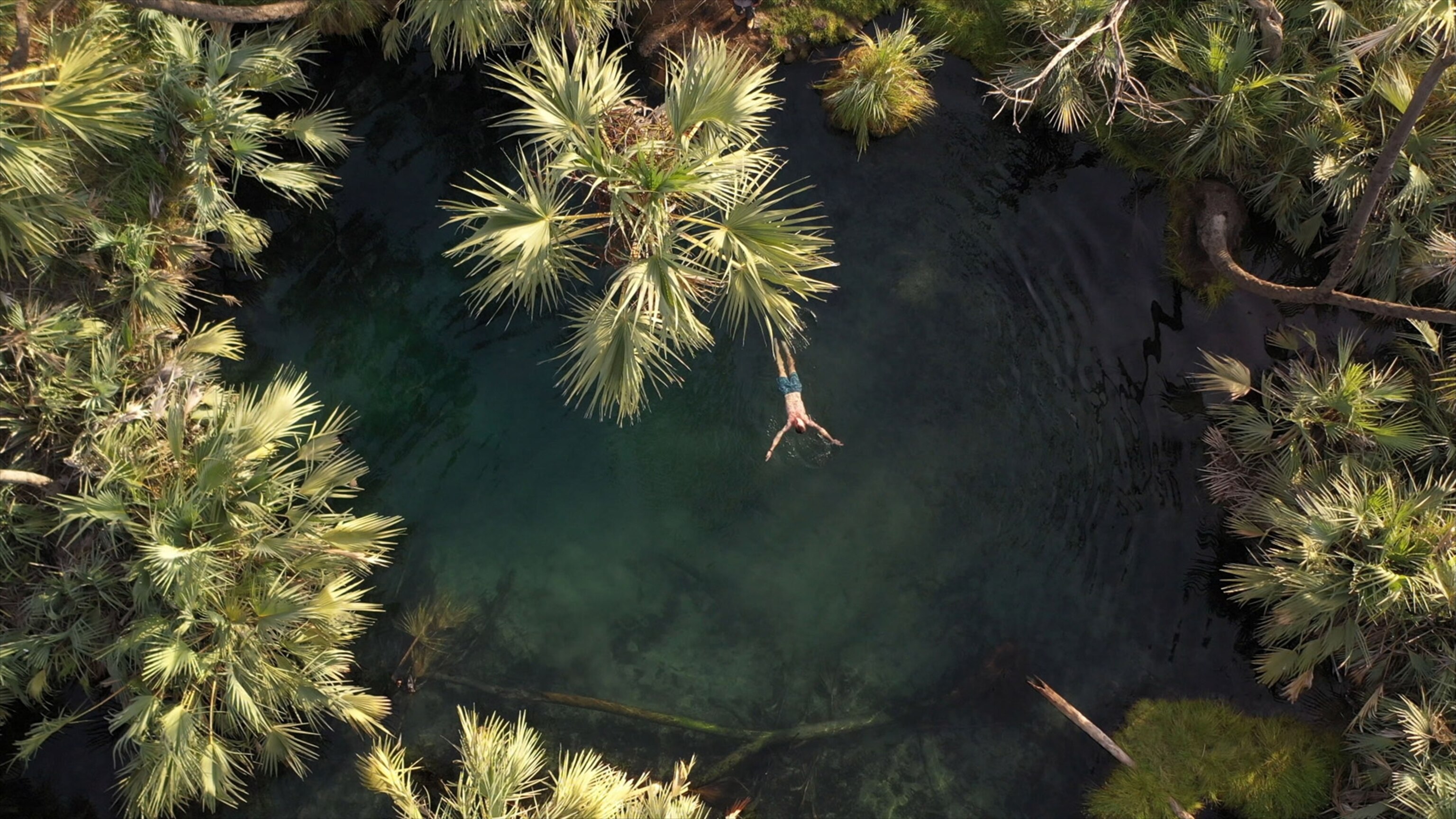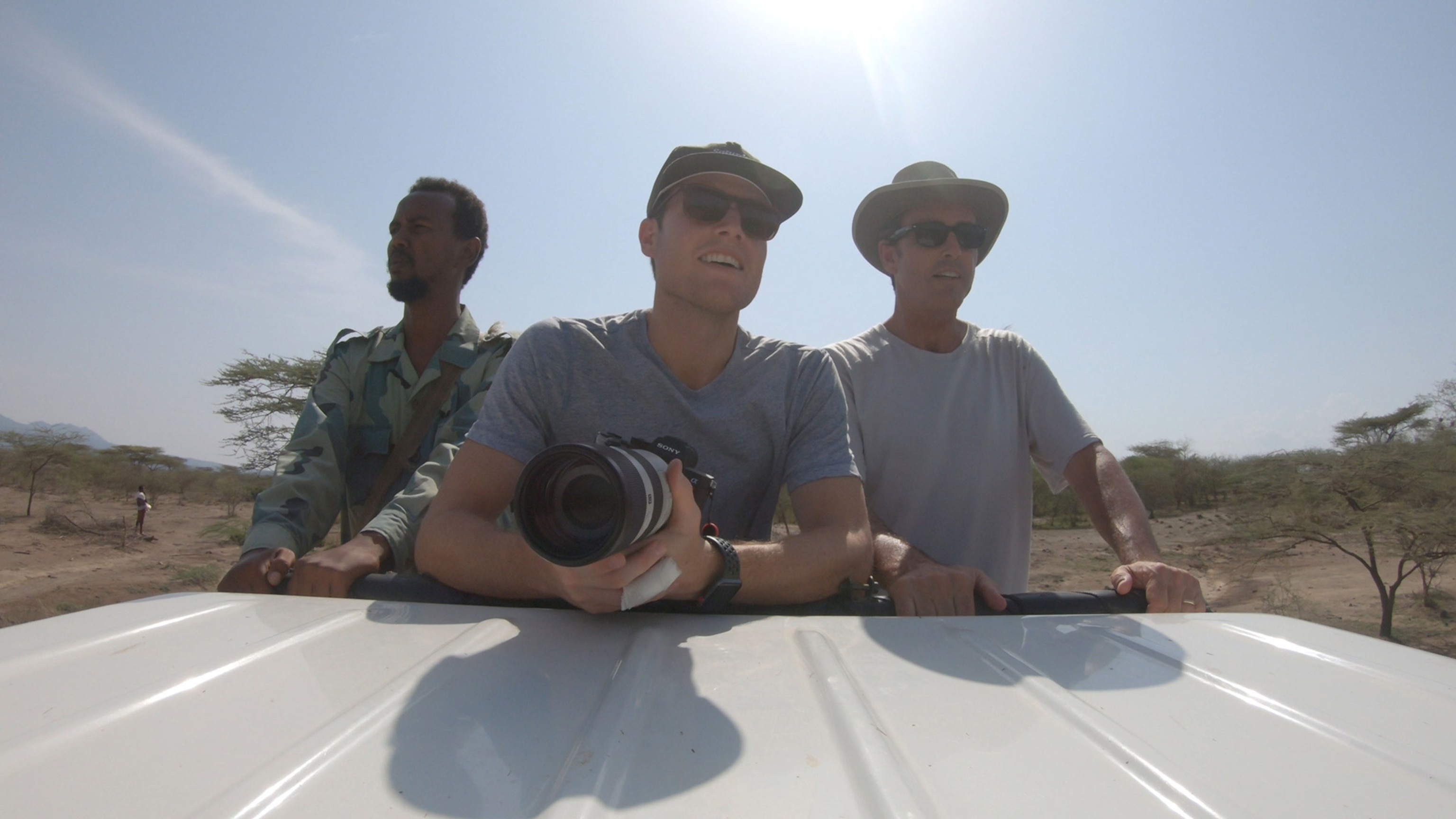
What’s it like to visit conflict zones? A former war correspondent tells us
ABC News journalist Bob Woodruff and his son uncover different sides to troubled destinations in the new travel series Rogue Trip.
On their second day in Beirut, Lebanon, last year, veteran journalist Bob Woodruff and his son, Mack, were jolted awake before dawn to news of explosions in a Hezbollah media building. The previous day, they had started their tour of the country diving off sun-drenched cliffs with locals. Now that idyllic image was shattered.
That moment, caught while filming a new National Geographic travel show, was a startling reality check of what life can be like in a zone known for conflict and adversity. On August 4, 2020, Beirut residents received another tragic reminder when a massive explosion rocked the Lebanese capital, killing at least 100 and wounding 4,000. Authorities are investigating the cause, focusing on 2,750 tons of explosive ammonium nitrate stored in a warehouse at the port.
But of course there’s more to places like Lebanon, and the Woodruffs’ new show, Rogue Trip, aims to prove it by delving into destinations and cultures often misunderstood in a mediascape that tends to focus on wars and conflicts.

The father-son duo visits locations such as Pakistan’s Swat Valley, where until recently the Taliban ruled over the locals and a young girl named Malala Yousafzai took a bullet to the head, simply for speaking out for a girl’s right to education. Other spots on their west-to-east itinerary include Colombia, Ethiopia, Papua New Guinea, and Ukraine.
(Related: Here are 10 of the world’s most spectacular road trips.)
Many of these regions are familiar to Bob, 58, who spent years covering them as a correspondent for ABC News, until he suffered a life-threatening brain injury in 2006, when a roadside bomb hit his armored vehicle in Taji, Iraq. He was rushed to the hospital where he underwent a craniectomy (at that time, a novel procedure to remove part of his skull) and was placed in a medically induced coma.
After a yearlong recovery process that included re-learning to walk and speak, he got back in front of the camera on one condition: “I did have this negotiation with my family, which was I wouldn’t cover active wars anymore,” he said during a recent phone call. “But I will cover conflict.”
For Mack, 29, a photographer, the journey was the chance to spend time with his father, who was often gone working a job that seemed as foreign to him as the countries his dad reported from. “I’ve been given the opportunity to see dad in a whole different light,” he says in one episode. “This is an absolute dream come true.”

We connected with the Woodruffs, at their home in upstate New York, on July 30. They talked about their eye-opening journey, joked about the ups and downs of traveling with family, and shared their thoughts on post-pandemic travel.
How did your accident change your perspective of the world?
Bob: I didn’t want Mack to think whenever I went to dangerous countries that I was risking my life every day. I just wanted to show him there were moments that were frightening but most of it was learning something new about a place people hadn’t been to before.
Mack: Dad did an amazing job of raising us [my two sisters and me] not to fear the world because of this fluke accident that happened to him. From the get-go he wasn’t angry about it or resentful of the Iraqi people or the country. I think when you have that much forgiveness in your heart, it’s pretty contagious. It was an unfortunate accident, and we became closer as a family.
What was it like to return to the places you reported on?
Bob: Some of the things we saw were unexpected because they didn’t exist [on my previous visits]. For example in Colombia, the FARC [military guerillas] had been fighting for decades. Before, we weren’t able to access those areas unless you had a very close relationship with someone, so we never did that story. But we found out that [the rebels] were trying to find some way out of the jungles to live a real life, not in hiding. They’re trying to find a way to bring tourists, and so we were able to get into this beautiful land where we can ride horses. That’s something we never would have expected five years ago.
Why was it important for you to do this show now?
Bob: We started shooting a year ago, and like the rest of the world, we had no idea that a crisis like this pandemic would be unleashed. But our goal was to show the world how these countries in so-called rogue areas had changed over time. We don’t get the chance to learn much about other parts of these countries, other than the places that get the most reporting, and sadly the reports are usually serious and generally negative. I knew there were other aspects, but I never had the chance to get there.
One theme of the show is getting out of your comfort zone. How were you able to do that?
Mack: At a rally in Lebanon, I was on edge. It just looked like the sort of images you see coming out of the Middle East that had been associated with fear-mongering propaganda in the past. But I was watching my dad talk to people and it didn’t feel so intimidating. It just looks different, but it isn’t actually different from anything in the States, like the protests here. That’s kind of at the heart of what this show is doing—hopefully breaking down barriers.
What has this experience taught you about family travel? Do you have any advice?
Mack: Traveling with family is incredible, but there will be some difficult times. I’m in a particularly different situation because my dad almost died. I’m very grateful and willing to look past some things because he shouldn’t be around. In terms of advice, I’d say don’t make [your trip] last five months!
Both of you have traveled extensively. What have you learned about the world during this particular experience?
Bob: I’ve seen more on this trip than in war zones that are on fire. People live in countries that to us seem like a place you might not want to live. But almost all the people we talked to told us that they’re very proud of their country. They’d like to fix problems and they have their difficulties, but they have no intention of leaving.
Mack: Even if you’ve been before, you shouldn’t rule out going to a place again because there’s an infinite number of experiences beyond what’s written [in online guides]. Once you peek your head behind that curtain and see what an experience like that gives you and how that makes you feel, you quickly discover you want to visit all the places.
After spending months together in close quarters, how are you handling quarantine life?
Mack: After the show, I was quarantining in Sydney, Australia, and just moved back to New York. We’re not sick of each other yet.
Bob: Speak for yourself! Mack just went camping by himself. I think we’re holding up, though.
What do you think travel will be like after the pandemic subsides?
Mack: Since everyone’s been cooped up, I’m very curious to see if everyone will travel or if people will be scared to get into a small metal tube. I think a lot of people are itching to get out and others are wary.
(Related: If you must travel now, here’s how to make it safer.)
At the end of each episode, Bob asks Mack where he wants to go next. When we’re able to travel safely again, where do you want to go?
Mack: Once a vaccine is widely available, our next trip will be to Italy to celebrate our mom and her 60th birthday, which we planned in May but had to cancel.
Bob: I think the last thing right now is to travel unendingly on a family vacation! I would like to get back out there and report on countries again.